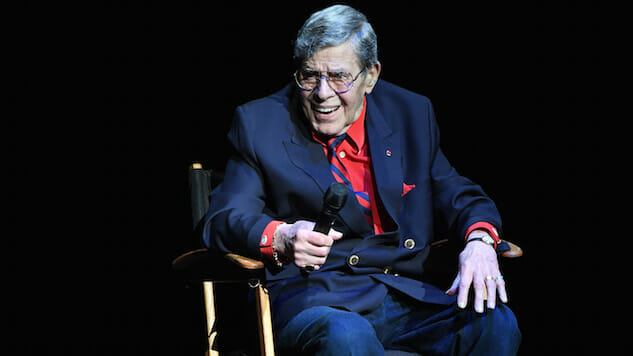Jerry Lewis, Legendary Performer, Director and Philanthropist, Dies at 91
Photo: Ethan Miller/Getty Images
Jerry Lewis, the comedian, actor and director who rose from the “Borscht belt” to stardom in radio, film and television, died Sunday morning in Las Vegas, Nev., at age 91. The news was first reported on Twitter by Las Vegas Review-Journal columnist John Katsilometes.
Lewis, born Joseph Levitch in Newark, N.J., in 1926, began his career in childhood, performing on stage in New York’s Catskill Mountains, but his big break came when he met singer Dean Martin in 1945. With an act that featured a novel blend of song, stand-up, and vaudeville traditions, “Martin and Lewis,” as the pair came to be known, swiftly made a mark as one of the most fruitful artistic partnerships of the postwar years, producing a popular radio show and 16 films together between 1949 and 1956.
After his acrimonious split with Martin, Lewis made a string of successful film comedies in the late 1950s and 1960s, first as an actor and then as actor/director—including, most famously, 1963’s The Nutty Professor. Despite a decade-long run of hits, however, Lewis’ career as screeched to a halt in 1972 with his notorious, never-released drama The Day the Clown Cried (1972), about a circus clown imprisoned in a Nazi concentration camp. (Years later, Harry Shearer, having seen a rough cut the late 1970s, described it in Spy magazine as “drastically wrong, its pathos and its comedy… wildly misplaced.) Throughout the rest of the 1970s and into the 1980s, Lewis’ credits as actor, writer and director were sparse.
-

-

-

-

-

-

-

-

-

-

-

-

-

-

-

-

-

-

-

-

-

-

-

-

-

-

-

-

-

-

-

-

-

-

-

-

-

-

-

-








































